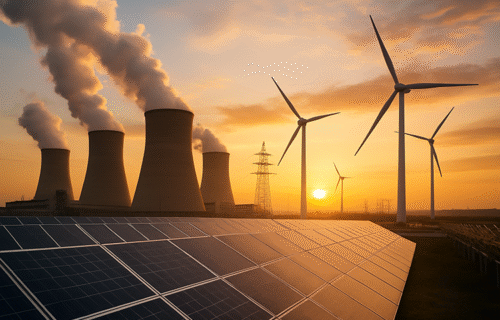The UN Climate Change Conference COP30 opens in Belém, Brazil, at a symbolic moment. Ten years after the Paris Agreement, the world is no longer debating climate science — it is confronting whether political leaders are willing to accept what the science actually demands: a global, time-bound exit from coal, oil and gas.
Claudia Kemfert, head of the Energy, Transport and Environment Department at DIW Berlin, argues that climate leadership requires more than speeches. In her assessment, Germany’s recent political hesitations reflect a broader problem. Instead of accelerating investment in renewables and energy efficiency, governments continue to make room for transitional fossil fuel solutions and delay full-scale transformation. She warns that the focus remains on incremental steps when large structural decisions are needed. For her, COP30 is not a negotiation about ambition, but evidence of political courage. It is where governments must show that the Paris Agreement was a commitment — not a press release.
The urgency she expresses is echoed across the global energy and finance community. Fatih Birol, Executive Director of the International Energy Agency, has repeatedly said that the world has crossed a tipping point. Solar and wind are now cheaper than new fossil fuel power generation in most countries, and according to the IEA’s net-zero roadmap, no new oil, gas or coal fields can be developed if the world expects to meet its climate goals. Fossil fuels are becoming a stranded business model, not a long-term economic plan.
The issue is not only environmental but economic. Kristalina Georgieva, Managing Director of the International Monetary Fund, points out that governments still spend more than seven trillion dollars a year subsidising fossil fuels — far more than what is committed to climate finance or energy transition support. She argues that the fastest way to reduce emissions by the end of this decade is to stop artificially lowering the price of pollution and instead direct capital toward clean infrastructure.
UNEP leadership reinforces this point. Inger Andersen, Executive Director of the UN Environment Programme, highlights that current government plans will result in more than double the amount of fossil fuel production that climate science allows. She notes that relying on voluntary pledges has failed and that only binding national plans will force the global economy onto a Paris-aligned trajectory.
Meanwhile, global financial institutions are positioned to deploy the capital required for transition. Ajay Banga, President of the World Bank Group, has stated that a massive reallocation of financing toward renewable energy and grids is possible if governments provide stable regulatory frameworks. Mark Carney, the UN Special Envoy on Climate Finance and former Governor of the Bank of England, frames the issue even more starkly: trillions of dollars are waiting to enter the clean transition, but investors are holding back due to policy uncertainty. Private capital is ready. It is political clarity that is missing.
Christiana Figueres, who led the Paris negotiations, cautions against ambiguous language. She argues that terms such as “phase down” are designed precisely to avoid action. If COP30 does not finally move toward “negotiating phase-outs,” she says, then the world will repeat the last decade’s cycle of pledges without delivery.
All these voices converge on one message. The world does not lack technology. It does not lack capital. It lacks the political will to accept that the age of fossil fuels is ending.
Kemfert’s conclusion becomes a unifying theme. Climate protection, economic competitiveness and social fairness are not competing priorities. They are mutually dependent. Countries that embrace the transition will attract investment, reduce energy dependency and benefit from the industries that will define the next economic cycle. Those that hesitate risk locking themselves into obsolete infrastructure and stranded assets.
The future will belong to nations that choose renewable energy not as an environmental gesture, but as a strategic economic asset. COP30 is the moment when promises must become decisions. A decade after Paris, the world knows what needs to happen. The only remaining factor is political courage.
Source: DIW Berlin, IEA, UNEP and CIJ.World Analysis Team
